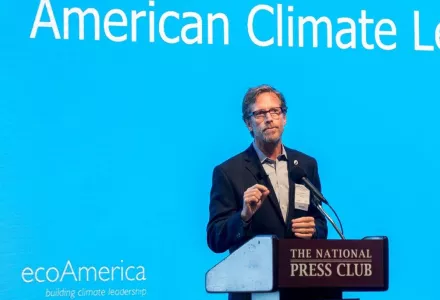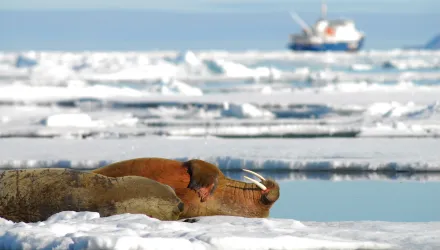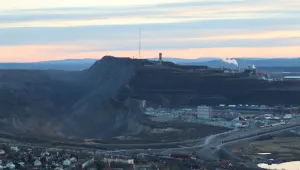While the causes and solutions for the climate crisis remain a political flashpoint, adapting to and building resilience in the face of evident impacts are a more politically safe means to address the slowly unfolding disaster. Until now. In shutting down scientific conversations about climate change, the Trump Administration is endangering Americans. Alaska Native villages on the Arctic coast are in an extremely vulnerable position due to the degradation of the permafrost and lack of protective sea ice during storm season – several communities are one storm away from being washed off the map. Unfortunately this Administration has focused on reversing all recent federal efforts to improve the resilience of these communities, and in doing so is adding to their level of risk. This is important beyond the Arctic as well, where coastal communities elsewhere in the U.S. are faced with sea level rise projections that put them at the same level of risk in the coming decades. It is essential to better understand the risk calculations for Arctic communities and for the private sector to act immediately, in the absence of federal will, to relocate Americans in peril.
Is there a role for private enterprise? Could Amazon or Google underwrite a full village relocation and link to tech opportunities in the north? Moving one or two villages would be enormous undertakings but could pay off in terms of establishing governance and funding models for sensitive cultural and physical relocation worldwide. Is it tenable to support such an effort with private resources when federal and state resources are unavailable? What level of ongoing investment would be required? How can local leadership be assured
Speaker Information:
Joel Clement is a science and policy consultant with a background in resilience and climate adaptation, landscape-scale conservation and management, and Arctic social-ecological systems. As Director of the U.S. Department of the Interior’s Policy Office he led a talented team of policy analysts and economists, provided advice and analysis for White House leadership and two Interior Secretaries, developed innovative policies to address landscape conservation needs, and was appointed as the Department of the Interior’s principal to the US Global Change Research Program. On behalf of the US Government he co-chaired the Arctic Council’s groundbreaking Arctic Resilience Report. Joel was awarded The Joe A. Callaway Award for Civic Courage in September, 2017, for blowing the whistle on the Trump Administration, and resigned from public service on October 6th of that year.
Before serving in the federal Government, Joel was the Conservation Science Program Officer for a private foundation in Seattle where he focused on climate change adaptation strategies, landscape-scale conservation, and improving geospatial data-sharing capacity in the North American West. Prior to his career in philanthropy, Joel spent a decade as a field biologist, developing and contributing to research and conservation science programs in temperate and tropical ecosystems around the world. Throughout his career, Joel has remained focused on the critical need to bridge gaps between science and policy. He is currently an Associate with the Stockholm Environmental Institute and a Senior Fellow with the Union of Concerned Scientists.



